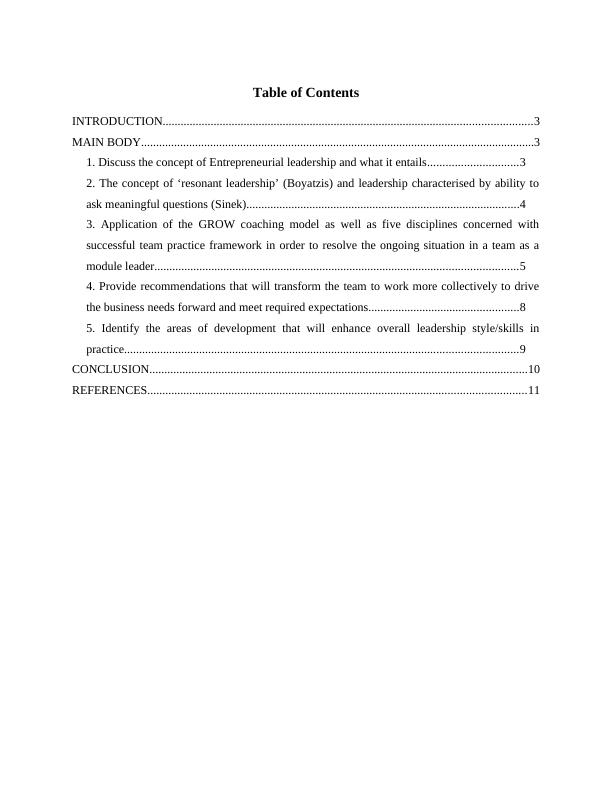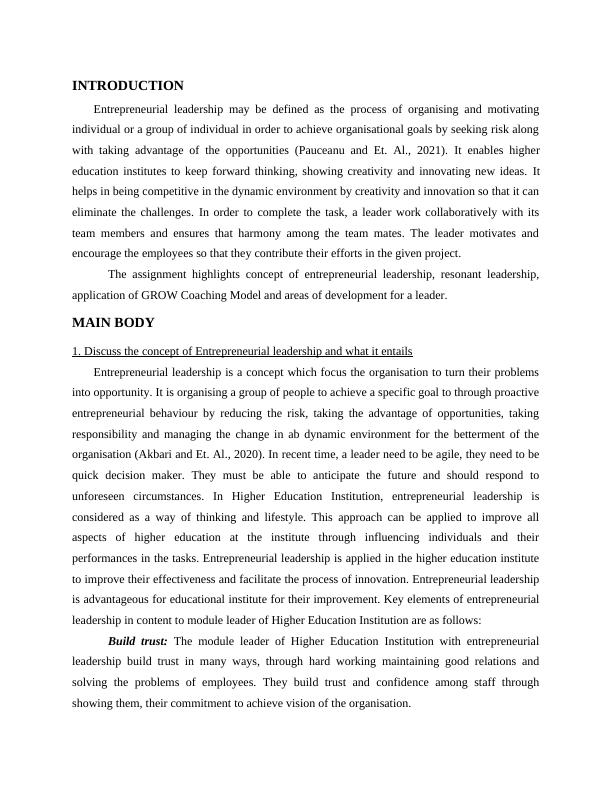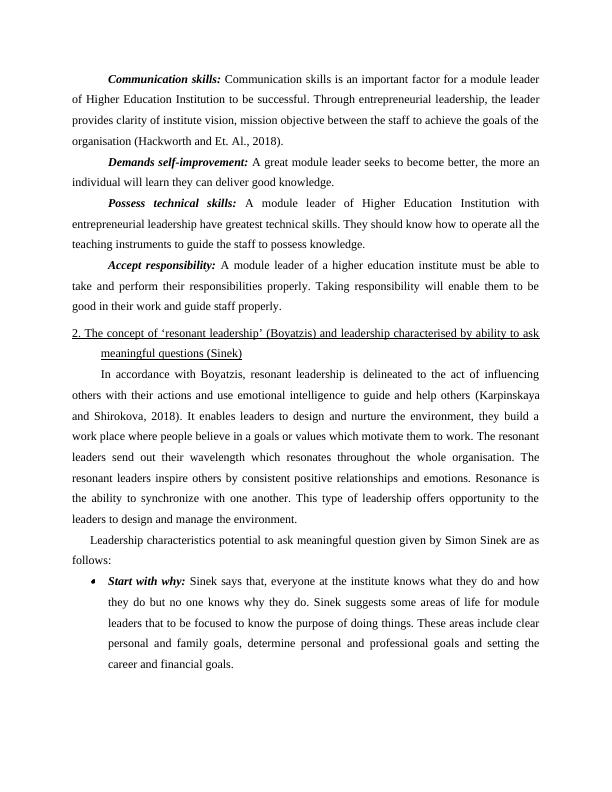Entrepreneurial Leadership: Concept, Resonant Leadership, GROW Coaching Model, and Team Practice Framework
11 Pages3399 Words198 Views
Added on 2023-06-11
About This Document
This article discusses the concept of entrepreneurial leadership, resonant leadership, GROW coaching model, and team practice framework in Higher Education Institution. It provides recommendations to transform the team to work more collectively to drive business needs forward and meet required expectations.
Entrepreneurial Leadership: Concept, Resonant Leadership, GROW Coaching Model, and Team Practice Framework
Added on 2023-06-11
ShareRelated Documents
End of preview
Want to access all the pages? Upload your documents or become a member.
Entrepreneurial Leadership: Resonant Leadership, Meaningful Questions, and GROW Model for Effective Coaching
|13
|3186
|170
Entrepreneurial Leadership: Concept, Resonant Leadership, GROW Coaching Model, and Team Transformation
|9
|3170
|424
Entrepreneurial Leadership: Role in Development of People, Teams and Ethical Organizations
|13
|3538
|125
Entrepreneurial Leadership: Theories, Challenges, and Applications
|10
|3172
|410
Entrepreneurial Leadership: The Role, Theories, and Practical Applicability
|13
|3631
|397
Entrepreneurial Leadership: Role in Development of People, Team, and Ethical Organization
|19
|5604
|163




